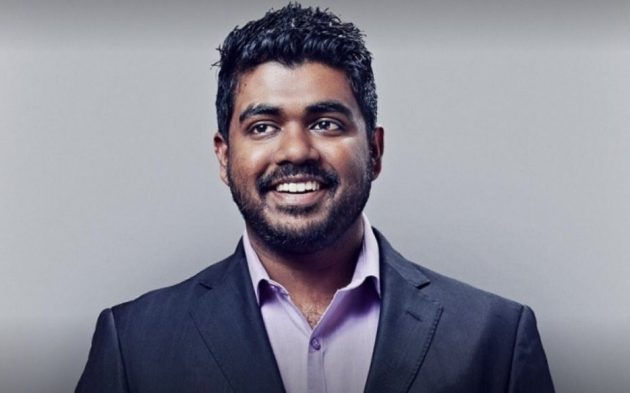
As a software developer, he could have easily got a job anywhere. He spoke fluent English. But when I asked him why he was still in the Maldives, he said simply: I was born here. I live here. And sometimes, when you live, you happen to express an opinion.
He said simply: The weird one, here, it’s not me.
On April 23, while going back home, Yameen Rasheed was stabbed to death.
He was 29 years old.
He was the only secular blogger of the Maldives. A few years ago, the other one was attacked in daylight, and nearly beheaded. And he moved abroad. But Yameen Rasheed looked at me, and said simply: The weird one, here, it’s not me.
And then he asked me about Syria. He asked me about Iraq, about Gaza. Libya. He asked me about everything. Because he was curious, brilliant. Well-read.
And because of the two of us, he believed me to be the brave one.
Even though Islam is actually the state religion of the Maldives: and the constitution, yes, protects freedom of expression, but only without infringement of the basic principles of the Quran. Only Muslims can be citizens of the Maldives. You can’t follow another religion, nor follow no religion. Apostasy is a crime.
It is a crime punished with death penalty.
In the Maldives, yes.
Because today, with the internet, we think we know all the world. In the end, it’s all on Google, isn’t it? You just need to search a bit. And instead, how many of us would ever imagine that the Maldives are ruled by the Sharia law? And a strict understanding of the Sharia law. With public flogging. Alcohol, sex: what is allowed to tourists, is forbidden to locals. Off the five-star resorts, the Maldives are a country of violence, of heroin. Poverty. Or more exactly: injustice. Because the Maldives have a population of roughly 300,000 people, and tourism revenues exceed 3.5 billion dollars per year: it could be like Switzerland. Yet, citizens get nothing. But really nothing. A bunch of well connected businessmen own the whole economy.
All the others are packed in Male, the capital city. In these two-room houses with ten people each. A survey on street violence found 63 percent of respondents feeling unsafe while walking alone. 43 percent, feeling unsafe even at home.
And many twentysomethings tell you: Anything is better than the Maldives. Even Syria. It’s the non-Arab country with the highest number per capita of foreign fighters.
That’s what Yameen Rasheed was writing about. Under threat not only constantly, but openly: but the police didn’t even answer to his phone calls. At some point, he took out of his bag Syrian Dust. And he handed me a pen. And I was so ashamed, while signing it, as always I am when I am asked to sign my book by a local journalist who thinks I am a hero, and instead I am nothing, in comparison: because we both risk our life, it’s true, but in the meantime, for now, our life is so different: in the meantime, for now, they get so much mud. Every day. So much hatred. They are blamed for writing only bad things, for destroying the reputation of their country. They do it only for money, they are said, for fame. For narcisism.
And in any case, it’s all a lie. Because else, no?, they wouldn’t be still alive.
If really the Maldives were such a hell.
Because if you go on a book tour, with scheduled dates, scheduled places, so, no?, you don’t need a protection. So it’s all a marketing trick. The Mafia doesn’t exist.
Because in Europe we are used to look down on the world. When I talked about the journalists of the Maldives, all under threat, I was replied: But it’s like Mexico. No. It’s like Italy, if only you happen to be Roberto Saviano.
Perhaps Yameen Rasheed would have been killed anyway. But during the winter he started to get more and more abusive messages. Coincidence: just after my reportage on jihadists. And after an al-Jazeera documentary on violence and corruption. Honestly, we didn’t say anything new for the Maldives: but we said it to all the world.
Sparking a man hunting against all those we had been in touch with.
All those who helped us.
I am a war correspondent. I was, and I am, ready to be killed: but I wasn’t ready to see someone else killed in my place. For my work. And for what, in the end? As if the world cared of the Maldives. My reportage, yes, was published in several countries. So what? The most common question I got from readers was only: But in the resorts it’s all fine, right? Because you know, I’ve already paid the travel agency.
Articolo Precedente
Migranti, Zuccaro in commissione antimafia: “Le indagini provano interessi mafie”

Articolo Successivo
Morti per amianto, assolti a Milano ex vertici Fiat Auto per caso Alfa di Arese






